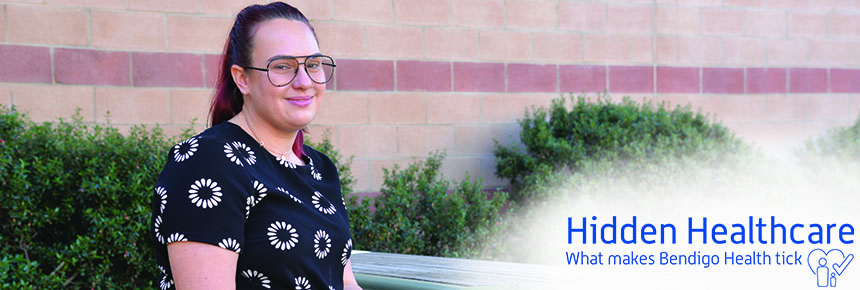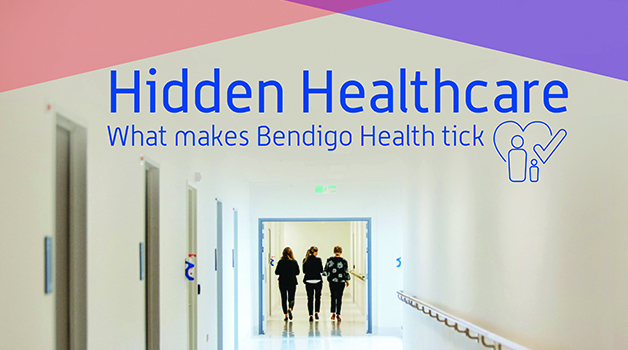
When Briony Lynch began her nursing career in an inpatient psychiatric unit, people were quick to offer advice.
“There’s a lot of stigma as a mental health nurse. People said to me ‘you’re not going to go far in your career’, ‘you’ll be burnt out in five years’, ‘why are you wasting that time’,” she said.
The reality has been quite the opposite for Briony, 25, now an Associate Nurse Unit Manager at Bendigo Health’s Dual Diagnosis Unit (DDU).
She explains how the negative perceptions of mental health nursing spurred her on.
“I wanted to prove they were wrong, this isn’t a dead end career, if I can help someone and improve someone’s life then it’s worthwhile,” she said.
Briony initially gravitated toward mental health after watching a family member benefit from treatment for schizophrenia.
“It showed me there are good care stories out there,” she said.
She completed a Bachelor of Nursing but was surprised at the limited mental health focus.
“It was a small subject (mental health), I did a two-week placement out of 16 weeks. Unless you knew you wanted to do it (mental health nursing) beforehand or had an interest in it, people are less likely to choose that career path,” she said.
Universities don’t currently offer an undergraduate double degree for mental health nursing, as they do in midwifery for example, which narrows the pool of prospective mental health nurses.
Bendigo Health offers a number of mental health graduate nurse positions each year to provide a variety of practical experience with a supported study program for new nurses.
Briony was one of 13 mental health nurses in the 2017 cohort at Bendigo Health and moved into the Extended Care Unit at the hospital after completing the program.
“It was fantastic, the biggest thing was the staff were so supportive, it made coming to work a lot easier when you were working in a field that could be challenging,” she said.
Dealing with volatile situations was confronting for Briony at first.
“One of the big things to learn is that it’s never personal. Some people can struggle with that. If someone is unwell, they’re unwell and they can’t always manage their emotions – that’s why they’re in hospital because they need help with that, so I think learning that it’s never an attack on you or your skills you’ve just got to manage it there and then,” she said.
Briony quickly learned that understanding the person is as important as understanding the illness.
“Knowing a person, what their triggers are and figuring out the early warning signs make it easier to assist them and prevent certain situations,” she said.
Briony has been able to better develop relationships with patients in the outpatient setting of the Dual Diagnosis Unit, which provides rehabilitation options for people experiencing mental illness and substance abuse problems.
“I’m able to run groups, promote exercise, assist the person to build skills which is important for recovery as it focuses the individuals on where they want to go,” she said.

For more in our Hidden Healthcare series, click the link below.
Hidden Healthcare